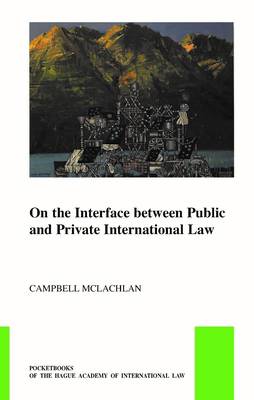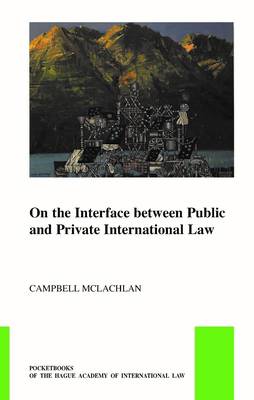
- Afhalen na 1 uur in een winkel met voorraad
- Gratis thuislevering in België vanaf € 30
- Ruim aanbod met 7 miljoen producten
- Afhalen na 1 uur in een winkel met voorraad
- Gratis thuislevering in België vanaf € 30
- Ruim aanbod met 7 miljoen producten
Zoeken
On the Interface Between Public and Private International Law
Campbell McLachlan
€ 38,45
+ 76 punten
Omschrijving
Our understanding of the operation of law beyond the nation State has been deeply shaped by two great disciplines: public and private international law. Yet surprisingly little systematic attention has been devoted to the relationship between the two. The public-private divide operates to separate the law that is concerned with the exercise of political power by States and the policy choices that we make for public purposes -- the domain of public international law -- from the exercise of economic power by corporations, regulated largely by private international law. In this first panoptic survey of the relation between the two fields, McLachlan argues that the neglect of this interface is highly consequential for our understanding of law's capacity to control the State and the corporation. Both are constructs of the law. But the function of law is not merely to empower and clothe these artificial persons with legal authority; it is also to impose legal responsibility, where the exercise of power gives rise to a breach and causes injury to others. Only by placing these two great systems side-by-side, can we see clearly where that responsibility lies and the necessary development of the law.
Specificaties
Betrokkenen
- Auteur(s):
- Uitgeverij:
Inhoud
- Aantal bladzijden:
- 416
- Taal:
- Engels
- Reeks:
- Reeksnummer:
- nr. 64
Eigenschappen
- Productcode (EAN):
- 9789004735712
- Verschijningsdatum:
- 3/09/2025
- Uitvoering:
- Paperback
- Formaat:
- Trade paperback (VS)
- Afmetingen:
- 110 mm x 180 mm
- Gewicht:
- 301 g

Alleen bij Standaard Boekhandel
+ 76 punten op je klantenkaart van Standaard Boekhandel
Beoordelingen
We publiceren alleen reviews die voldoen aan de voorwaarden voor reviews. Bekijk onze voorwaarden voor reviews.








